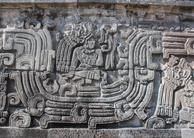A CouchSurfing Ethnography: Traveling and Connection in a Commodified World
By
2012, Vol. 4 No. 07 | pg. 1/3 | »
IN THIS ARTICLE
KEYWORDS
AbstractThe past decades have seen significant expansion in the markets for commercial tourism, offering high-cost accommodation, luxury services, and resort getaways for the Western consumer. In the context of high expenditure-and-profit tourism, forms of alternative tourism distant from the commercial arena have emerged globally. Examples include Hospitality Exchange and the CouchSurfing Project. This ethnographic study analyzes the CouchSurfing Project as an emerging social and cultural phenomenon, and seeks to determine the shared meanings, values, and social interpretations of CouchSurfers that support this community. Mixed methodologies were employed, including participant-observation, informal dialogue, and structured interviews. Results demonstrate that members participate in CouchSurfing for much more than the goals of cost-free accommodation. Moreover, this ethnography demonstrates that participants are motivated by a shared desire to form meaningful connections and local friendships, deepen cultural understanding, and ultimately pursue personal and intellectual growth through their platforms as travelers and Couchsurfers. "Travel is more than the seeing of sights; it is a change that goes on, deep and permanent, in the ideas of living."
Miriam Beard The practice of leisure traveling and tourism is not a new phenomenon. The earliest form of tourism can be traced as far back as the Babylonian Empire where people congregated at holy sites, while centuries later Victorian era gentry travelled to enjoy life and the culture of Paris, Venice or Florence. In the last century, the development of air travel and cars has dramatically altered the movement of people around the earth, and traveling for business and leisure has become increasingly available to people across socio-economic means. Subsequently, the markets for commercial tourism have expanded exponentially, and offer high-cost accommodation, luxury services and resort getaways for the Western consumer. In the context of high expenditure-and-profit mass tourism, different niches of low-budget travelers have emerged that are expanding around the world. Among these are traveling communities such as Hospitality Club and Couchsurfing, which offer free accommodation to travelers in more than 130 countries around the world. These exchanges, which involve host and traveler, usually consist of a traveler residing in the home of the host, sleeping a few nights on a sofa or guest bed, and leaving after a few days with no monetary profit for either party. Some people question the practice of welcoming a stranger into one´s home, but for others this seems like an interesting and appealing idea.The purpose of this ethnography is to explore and analyze the culture of these hospitality exchanges, with a focus on the organization and practice of the CouchSurfing Project. Specifically, in this research I seek to determine the shared meanings, values, and interpretations of members that make the CouchSurfing Project possible. Moreover, I will explore the motivations, intentions and rationale of members for engaging in this social practice. Finally, I will investigate how relationships are constructed and facilitated through this exchange of hospitality and culture. Through analysis of the information gained from conducting participant-observation, informal dialogue, and structured interviews, I will argue that members of this community are bound together by a desire to pursue cultural understanding, human connection, and personal and intellectual growth through traveling. Current LiteratureCouchSurfing is a non-profit organization that seeks to “internationally network people and places, create educational exchanges, raise collective consciousness, spread tolerance and facilitate cultural understanding” (Couchsurfing 2011). As a network of hospitality and exchange, CouchSurfing connects travelers with local hosts who offer free accommodation around the globe. Created in 2003, CouchSurfing now has more than a million members in over 230 countries, and parallels hospitality networks such as Hospitality Club, GlobalFreeloaders.com, and Tripping.com. Much has been written on the nature of online communities, but a hospitality network such as CouchSurfing occupies a unique niche in internet communities because its interactions take place both online and offline. Much of the literature on CouchSurfing has been focused on the online world of CouchSurfing—namely, analyzing how the internet and online platform of CouchSurfing facilitates the friendships and trust levels of its members. Lauterbach et al. (2009) argues that the CouchSurfing network displays a high degree of reciprocal interaction that is enabled by an online system of references that allow individuals to vouch for one another. The online CouchSurfing platform implements a reputation system that includes personal references (from surfers and hosts to each other), physical verification, and vouching. Lauterbach et al. suggest that these kinds of reputation mechanisms, with vouching in particular, are essential for making users feel comfortable with online interactions and continuing the cycle of participation. In addition, Rosen et al (2011) explore how the use of online networking resources such as CouchSurfing.com can generate trust, sense of belonging to a community, and encourage face-to-face encounters. They find that members of online communities feel a greater sense of belonging when they have participated in offline engagements. A large percentage of CouchSurfing literature analyzes the mechanisms of trust and community building through online interactions. However, an overemphasis on virtual networks and online trust mechanisms may overlook the fact that although trust can be recorded and used for prediction purposes in CouchSurfing, the real origins of trust are found and nurtured through human contact and relationships. It is also important to note that there does not exist a strict dualism between online interactions and offline experiences; rather, online communication operates in a feedback loop with offline interactions. Rosen et al. describe CouchSurfing as a community that has “merged the virtual and physical,” whose interactions take place in both realms. Therefore, the internet provides the platform with which to begin establishing CouchSurfing relationships (through creating personal profiles, seeking hosts, etc.), but its ultimate value lies in facilitating offline interactions for direct human engagement. After experiencing the physical interactions of surfing or hosting, participants then voluntarily return to the online platform to create new connections. These offline interactions create energy and potential that is channeled into the online community in order to generate more energy and potential, thus reaffirming and reproducing the cycle of CouchSurfing experiences. Therefore, if one seeks to determine the origins of trust and engagement in the CouchSurfing community, one must turn to the motivations and interests of members in the community. This current ethnography seeks to contribute to the literature by further developing an understanding of the values and personal interests of CouchSurfers, and how these values foster relationships of trust, a sense of belonging, and continuing participation for CouchSurfing members. Method and MaterialIn this ethnography, I employ methods of participant-observation, informal conversations, and formal interviews order to investigate how CouchSurfing members “view the situations they face, how they regard one another, and how they see themselves” (Hammersly & Atkinson, 13). I resided with seven different hosts over a total time period of five weeks, attended weekly CouchSurfing meetings, initiated informal dialogue about CouchSurfing, and conducted five formal interviews. For the purposes of this ethnography, I chose to assume the roles of both couchsurfer and researcher through the practice of integrated participant-observation. During the course of my research, I used the CouchSurfing database to search for hosts, communicate with hosts, and subsequently reside in his or her home for a period of days. By participating as couchsurfer-researcher, I was able to obtain a number of advantages that could not have been found otherwise. Foremost, my role as couchsurfer participant helped me gain access to the homes of couchhosts, through which I was able to obtain firsthand experience of the social interactions, expectations, and negotiations that comprise a surfer-host relationship. Furthermore, my role as couchsurfer helped me build rapport and connection with my hosts who I subsequently asked for more in-depth interviews. These interviews were crucial in providing in-depth personal accounts of people’s experiences of Couchsurfing, which were used for further analysis. The roles of researcher-couchsurfer allowed me the flexibility to pursue different avenues of information and experiences of Couchsurfing, adding valuable perspectives to this research.Continued on Next Page » Suggested Reading from Inquiries Journal
Inquiries Journal provides undergraduate and graduate students around the world a platform for the wide dissemination of academic work over a range of core disciplines. Representing the work of students from hundreds of institutions around the globe, Inquiries Journal's large database of academic articles is completely free. Learn more | Blog | Submit Latest in Anthropology |


















